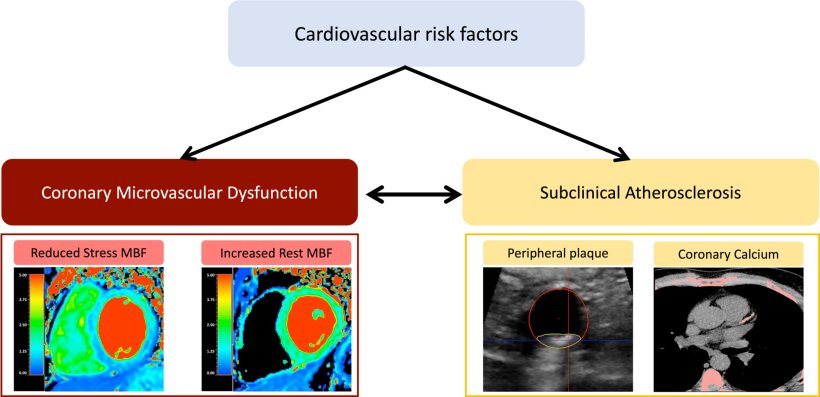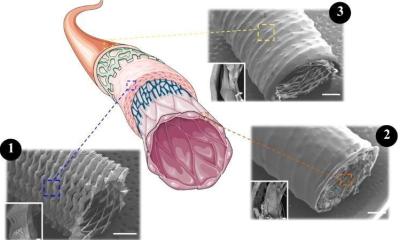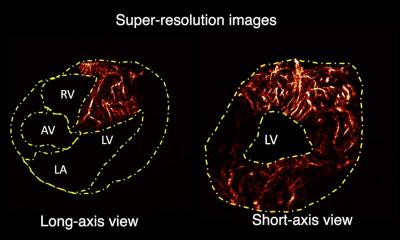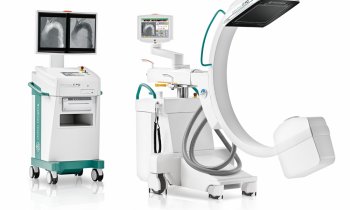
Image credit: CNIC; adapted from: Devesa A et al., JACC: Cardiovascular Imaging 2024 (CC BY-NC-ND 4.0)
News • Increased risk of atherosclerosis
Cardiometabolic risk factors impair heart microcirculation
A study carried out at the Centro Nacional de Investigaciones Cardiovasculares (CNIC) in Madrid, Spain provides crucial information about the effect of cardiometabolic risk factors and subclinical atherosclerosis on the network of microvessels that irrigate the heart in symptom-free middle-aged individuals.
The study, published in JACC: Cardiovascular Imaging, highlights the importance of assessing coronary microvascular function in individuals with no known cardiovascular disease in order to improve the prediction of atherosclerosis progression and future cardiovascular risk.
Coronary microvascular function is the capacity of the microvessels in the heart to regulate blood flow and supply oxygen, crucial determinants of heart health. The study used cardiac magnetic resonance imaging to measure blood flow at rest in the coronary microvasculature of 453 asymptomatic middle-aged participants in the PESA-CNIC-Santander (Progression of Early Subclinical Atherosclerosis) study.
These findings could lead to changes in the way we monitor and treat people with cardiometabolic risk factors, even before they show symptoms of cardiovascular disease
Valentín Fuster
The results demonstrate that impaired coronary microvascular function is directly associated with the presence of cardiometabolic indicators such as metabolic syndrome, insulin resistance, and diabetes, as well as with subclinical atherosclerosis (the presence of fatty lesions in artery walls before the appearance of symptoms) in peripheral or coronary arteries. "Our findings suggest that coronary microvascular function could play a crucial role in the prediction of long-term cardiovascular risk in apparently healthy individuals,” explained Dr. Ana Devesa, first author on the study. "Physicians should consider the use of microvascular dysfunction as an early marker in the assessment of cardiovascular risk.”
The study was led by Dr. Borja Ibáñez, who is the Scientific Director at the CNIC, a cardiologist at Hospital Fundación Jiménez Díaz and a group leader in the Spanish cardiovascular research network (CIBERCV). Dr. Ibáñez emphasized the value of examining PESA study participants: “The PESA population covers a crucial age group for the early detection of cardiovascular disease. By assessing microvascular function in this population, we were able to identify patterns that might have been hidden in other groups. Focusing on this age group gives us a unique window of opportunity for the implementation of primary prevention strategies, before the appearance of clinical symptoms."
Dr. Valentín Fuster, CNIC General Director and leader of the PESA study, stressed the clinical implications of the results: “Our results show that coronary microvascular dysfunction is a key indicator that should be considered in routine clinical practice. These findings could lead to changes in the way we monitor and treat people with cardiometabolic risk factors, even before they show symptoms of cardiovascular disease. The ultimate goal is to improve prevention and reduce the incidence of cardiovascular events.”
Over a three-year follow-up, atherosclerosis progression was less pronounced among participants who had better coronary microvascular function at the start of the study. This result underlines the potential of microvascular function as a key marker in the stratification of cardiovascular risk and the prevention of future events.
Overall, the study shows that, in a large cohort of asymptomatic middle-aged individuals with no ischemic heart disease, the presence of cardiometabolic risk factors and systemic atherosclerosis is associated with altered coronary microvascular function. The higher the burden of cardiometabolic risk factors and the greater the extent of subclinical atherosclerosis, the stronger the impairment of coronary microvascular function. Moreover, preserved coronary microvascular function is associated with a lower risk of atherosclerosis progression.
Source: Spanish National Center for Cardiovascular Research
22.09.2024











